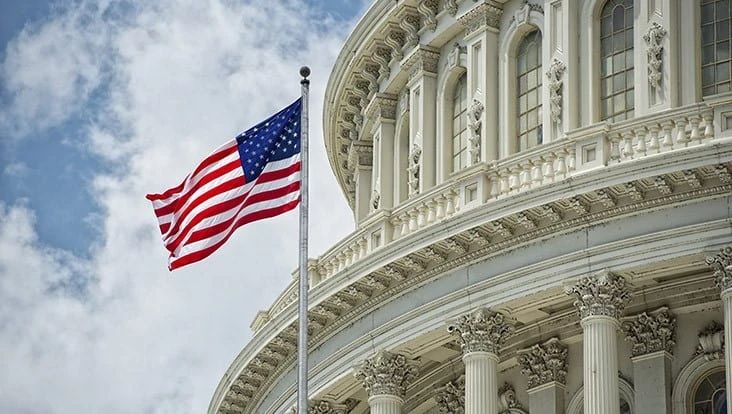
Photo courtesy Thinkstock
Maine’s Joint Standing Committee on Environmental and Natural Resources recently cleared a bill that would make manufacturers cover the cost of collecting and recycling packaging materials. Next, the extended producer responsibility (EPR) bill will be reviewed by lawmakers for consideration in the summer.
Called LD 1541, the bill would make packaging producers pay into a stewardship fund for municipal waste and recycling management. The funds also would be used to improve waste reduction through education and infrastructure investments, according to the bill.
“The producers of packaging bear no financial burden for the disposal of the trash they create,” Rep. Nicole Grohoski, the sponsor of the bill, said during a committee hearing May 17. “This system isn’t fair, and it isn’t working.”
The producer's payment will reflect the per-ton costs associated with collecting, processing, transportation and recycling or disposing of its materials, says Sarah Nichols, the program director of the Natural Resources Council of Maine’s Sustainable Maine Program.
The bill allows for exceptions. For example, if a producer made less than $2 million in total gross revenue in the previous year, they would be exempt from paying into the fund. A producer must provide proof that it meets these requirements, according to the bill.
While the bill could potentially enact fees for producers making more than $2 million in revenue, it also introduces a tracking system for packaging and production in the state. The organization selected to run the program would be required to provide info on the participants of the program, the total weight of each type of packaging collected and managed by the participants and conduct representative audits of the companies involved.
Companies could reduce their liability to the program by creating independent recycling programs or reducing the amount of packaging on the products they sell. However, the program would need to provide year-round, convenient and free services. It also would need to be statewide.
Manufacturers looking to create a program also would have to explain what will happen to the packaging once collected.
While the bill has garnered support from lawmakers and government officials, it also has drawn criticism. The Consumer Brands Association, a national trade association for the consumer packaged goods industry based in Washington, recently released a statement saying the bill lacks “smart policymaking.”
“As the Maine Legislature continues its consideration of EPR, revenue proposals should support real recycling solutions, not BE the solution,” says Jen Daulby, vice president of government affairs for the association. “In moving so quickly, it has chosen expediency over efficacy and is failing to follow a thorough rulemaking process.”
However, government officials believe this legislation will help alleviate financial issues stemming from recycling programs.
“There is data that shows recycling rates improve over time with EPR laws, and we expect that to happen here,” Nichols says. “Municipalities pay 67 percent more on average to recycle than disposal. That puts them in tough situations where they have to raise taxes to pay for a recycling program.”
Communities in Maine have been dealing with a continuous increase in recycling costs since the Chinese government first placed restrictions on imports of recyclables before prohibiting some shipments altogether. As a result, some communities have cut back or eliminated their recycling programs. On average, it costs Maine residents about $16 million a year to manage packaging waste, according to the Maine Department of Environmental Protection.
The proposed legislation would reimburse communities for the cost of their recycling programs. However, to be reimbursed, municipalities would have to recycle specific items.
If the bill is approved, it is unclear at this point who will be selected to manage the stewardship program, Nichols says. Lawmakers will have until May 1, 2022, to decide.
Latest from Recycling Today
- BMW Group, Encory launch 'direct recycling’ of batteries
- Loom Carbon, RTI International partner to scale textile recycling technology
- Goodwill Industries of West Michigan, American Glass Mosaics partner to divert glass from landfill
- CARI forms federal advocacy partnership
- Monthly packaging papers shipments down in November
- STEEL Act aims to enhance trade enforcement to prevent dumping of steel in the US
- San Francisco schools introduce compostable lunch trays
- Aduro graduates from Shell GameChanger program





